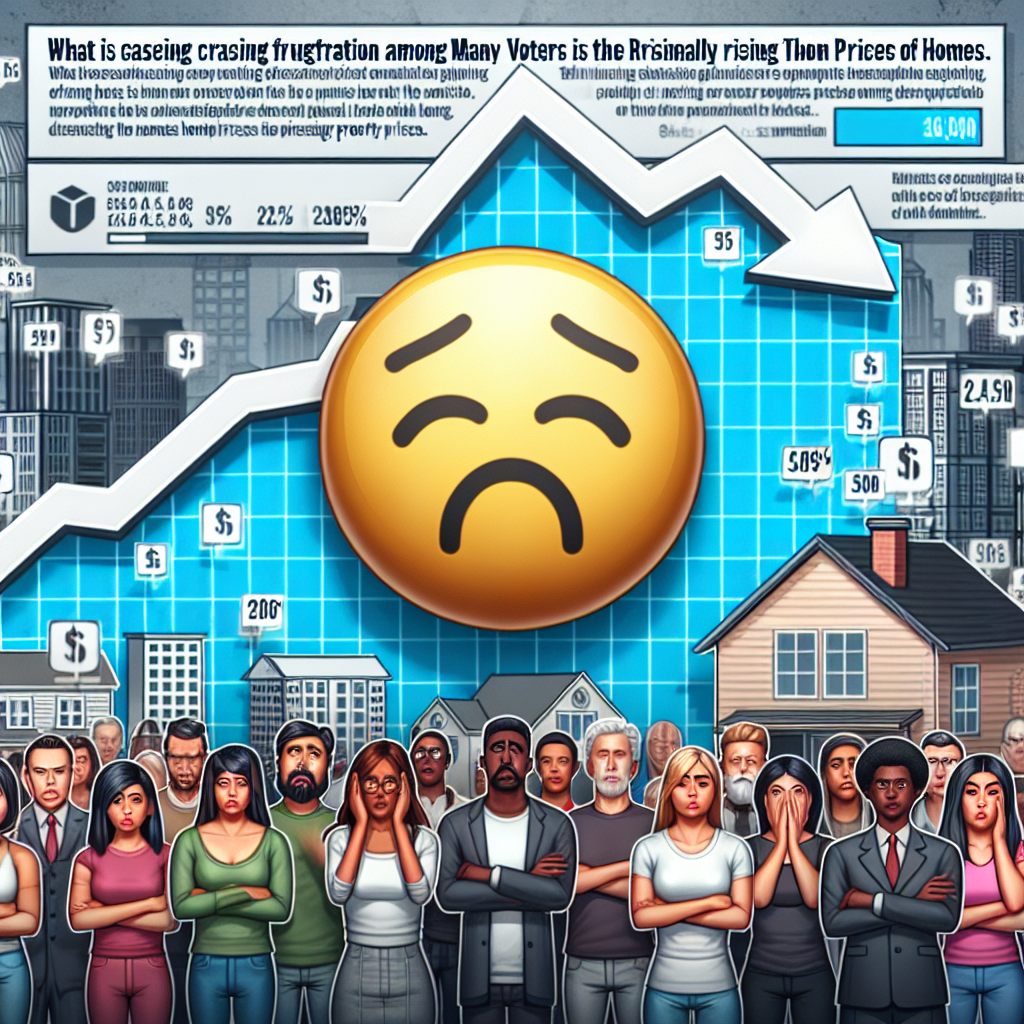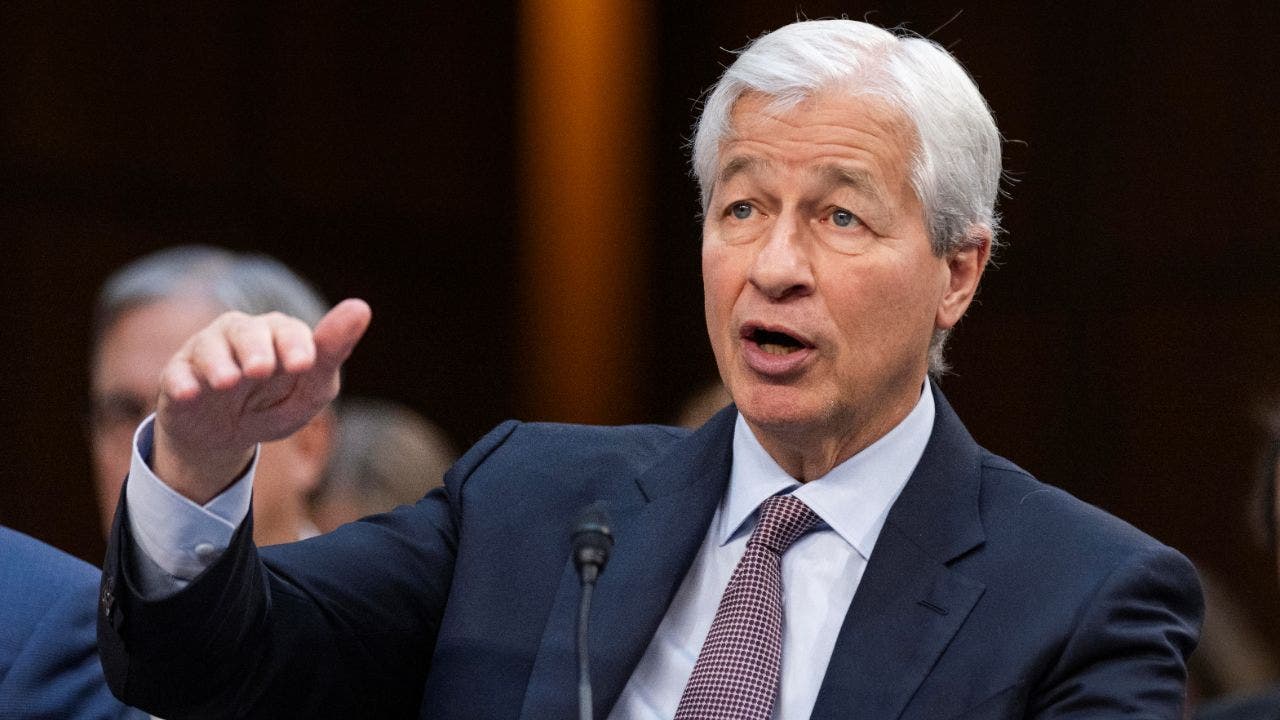Finance News
What is causing frustration among many voters about the US economy is primarily the rising prices of homes.

What is causing frustration among many voters about the US economy is primarily the rising prices of homes.,/h3>
WASHINGTON — Lori Shelton finds herself in a challenging financial situation, unable to afford a home despite working multiple jobs to make ends meet. This struggle is indicative of a broader issue affecting many Americans and is shaping perceptions of the economy leading up to the presidential election.
Shelton, 67, drives for Uber in Aurora, Colorado, just to help cover the rent. Despite her efforts, she often finds herself falling behind financially, caught in a cycle of paycheck to paycheck living. This housing affordability crisis is not unique to Shelton but reflects a larger trend of a shortage of homes in the United States.
The root cause of this crisis is the failure to build enough homes to accommodate the growing population, impacting the American dream of homeownership. President Joe Biden’s assurances of a strong economy are dampened by the reality of soaring housing prices and limited availability. This issue has been largely overlooked by former President Donald Trump, further exacerbating the housing shortage.
The impact of the housing shortage extends beyond individual households, with record numbers of renters spending a disproportionate amount of their income on housing. The lack of available homes for sale or construction further drives up prices, making homeownership increasingly unattainable for many.
Despite reassurances from administration officials that the housing market will soon stabilize, advocates and economists are concerned about the long-term effects of this crisis. The bipartisan nature of the housing affordability challenge suggests a need for cohesive policy solutions to address the issue.
In the upcoming election, the path of mortgage rates is expected to play a significant role in shaping voter sentiment. Higher rates could further exacerbate the affordability crisis, making homeownership out of reach for many potential buyers.
In his State of the Union address and budget proposal, President Biden has outlined measures to address the housing shortage, including funding for new housing units and tax credits for homebuyers. However, the scale of the problem requires a comprehensive approach that goes beyond short-term solutions.
While there are differing opinions on how to increase housing supply, the need for action is urgent to prevent further economic fallout from the housing affordability crisis. The long-term consequences of inadequate housing availability extend far beyond individual financial struggles, impacting societal well-being as a whole.
Frequently Asked Questions
Q: What are the main factors contributing to the housing affordability crisis?
A: The shortage of available homes for sale or construction, coupled with rising prices and stagnant wage growth, are the primary drivers of the housing affordability crisis.
Q: How do mortgage rates impact housing affordability?
A: Higher mortgage rates can make homeownership more expensive and out of reach for many potential buyers, further exacerbating the affordability crisis.
Q: What are the potential policy solutions to address the housing shortage?
A: Policy measures such as funding for new housing units, tax credits for homebuyers, and zoning changes to incentivize construction are being considered to tackle the housing affordability crisis.
Q: How does the housing affordability crisis impact the overall economy?
A: High housing costs can lead to reduced spending in other areas, affect property maintenance standards, and have broader societal implications such as health and education outcomes.
Finance News
Rare earth minerals at center of US-China trade talks after export drop

Fox News contributor Michael Pillsbury on what’s at stake as U.S. and China hold trade talks in London.
Officials from the U.S. and China met on Monday to begin a two-day session to discuss bettering trade ties and further deescalate the trade war.
Details of the meeting have not yet emerged, though a source told FOX Business the discussions lasted nearly seven hours and prompted the delegations to order dinner in, as they continued negotiations.
The meeting, which will continue tomorrow, comes just four days after President Donald Trump and Chinese President Xi Jinping held a phone call for the first time since Trump re-entered office and then hit Beijing with a whopping 145% tariff.
Though China initially responded with reciprocal 125% tariffs, both sides agreed to temporarily slash the trade dispute for 90 days last month, as negotiators worked to improve trade ties, temporarily putting in place a 30% tariff on Chinese goods, while Beijing implemented a 10% tariff on U.S. imports.

China’s President Xi Jinping shakes hands with President Donald Trump before a bilateral meeting on the sidelines of the G-20 Summit in Osaka, Japan, in June 2019. (Brendan Smialowski/AFP / Getty Images)
EXPERT REVEALS AMERICA’S ‘SECRET WEAPON’ AGAINST LONG-TERM COMPETITION WITH CHINA
White House economic advisor Kevin Hassett on Monday said rare-earth minerals will be at the heart of what the administration is hoping to get out of this round of talks, particularly after it accused China of purposefully slow-rolling exports of the critical minerals.
China last month dropped its supply of rare-earth minerals by nearly 50% from the year prior in what some reporting suggested was a move to highlight its trump card when it comes to the valuable elements.
“The purpose of the meeting today is to make sure that they’re serious, but to literally get handshakes,” Hassett, director of the National Economic Council, told CNBC on Monday. “Our expectation is that after the handshake… any export controls from the U.S. will be eased and the rare earths will be released in volume and then we can go back to negotiating smaller matters.”

Vietnam’s Communist Party General Secretary To Lam, right, and China’s President Xi Jinping leave after their meeting in Hanoi on April 14, 2025. (Nhac Nguyen/Pool/AFP via / Getty Images)
JOB GROWTH CONTINUED TO SLOW IN MAY AMID ECONOMIC UNCERTAINTY
Hassett said Trump and Xi discussed the issue of rare-earth exports and magnets, of which China controls some 90%, and which are necessary for major industries like auto and tech.
The director said the export slowdown could disrupt companies across the economy and noted Trump took the issue “very seriously.”
Despite assurances from the president that customers would not feel the sticker shock at the checkout counter, rare-earth minerals were not the only item to take a hit.

Rare-earth mine in a town in Inner Mongolia in China. The mines north of town are one of the largest deposits of rare earth metals found in the world. (Bert van Dijk / Getty Images)
GET FOX BUSINESS ON THE GO BY CLICKING HERE
According to a Reuters report, China’s exports to the U.S. dropped nearly 35% last month from the previous year, which is the sharpest drop since the coronavirus outbreak began to hit the U.S. in February 2020.
Top administration officials from the U.S., including Treasury Secretary Scott Bessent, Commerce Secretary Howard Lutnick and U.S. Trade Representative Jamieson Greer, are expected to attend the meetings in London, signaling how significant restoring rare earth exports is to Washington.
Fox Business’ Edward Lawrence contributed to this report.
Finance News
JPMorgan CEO Jamie Dimon to allow Bitcoin at the bank

Bespoke Investment Group co-founder Paul Hickey breaks down the current volatility in the market and discusses his current favorite investment opportunities on ‘Making Money.’
JPMorgan CEO Jamie Dimon still isn’t a fan of Bitcoin but he’s not letting his personal feelings get in the way of business at the bank.
“When I look at the Bitcoin universe, the leverage in the system, the misuse,” he said at the company’s annual investor day Monday in New York. Noting that bad actors can use it for sex trafficking and terrorism.
“I am not a fan of it. We are going to allow you to buy it. And we’re not going to custody it. We’re going to do is put it on statements for clients. So, you know, I don’t think we should smoke, but I defend your right to smoke. I defend your right to buy Bitcoin, go at it”, he added.
JPMorgan Chase CEO Jamie Dimon Speaks at Investor Day 5/19
At JPMorgan’s Investor Day, Dimon said the bank will now allow clients to buy Bitcoin but that policy hasn’t changed his view on the cryptocurrency. (JP Morgan)
Bitcoin, the largest crypto by market value, is just shy of its all-time high of $106,734.51 reached last year.
DIMON SOUNDS OFF ON HIGH MORTGAGE RATES, LAYS BLAME
Dimon has long been a critic of Bitcoin, including these remarks from 2021:
“I personally think that Bitcoin is worthless,” Dimon said while speaking at a virtual event hosted by the Institute of International Finance. “But I don’t want to be a spokesman for that, I don’t care. It makes no difference to me.” Dimon has also likened the crypto to “fools gold.”
Shares of JPMorgan Chase are up over 10% outperforming the S&P 500 which is flat for the year.
In January 2024, the Securities and Exchange Commission greenlighted the first Bitcoin exchange-traded fund, prompting a slew of firms to launch their own, making the asset class more accessible for both institutional and retail investors.
| Ticker | Security | Last | Change | Change % |
|---|---|---|---|---|
| IBIT | ISHARES BITCOIN TRUST – USD ACC | 60.66 | +0.68 | +1.13% |
| FBTC | FIDELITY WISE ORIGIN BITCOIN FUND – USD ACC | 93.14 | +0.98 | +1.06% |
| GBTC | GRAYSCALE BITCOIN TRUST ETF – USD ACC | 84.12 | +0.88 | +1.06% |
GET FOX BUSINESS ON THE GO BY CLICKING HERE
iShares Bitcoin Trust ETF, Fidelity Wise Origin Bitcoin ETF and Grayscale Bitcoin Trust ETF are currently the largest funds by assets under management, as tracked by ETF.com.
Finance News
Credit Repair Hacking – Boost Your Credit Score

Product Name: Credit Repair Hacking – Boost Your Credit Score
All orders are protected by SSL encryption – the highest industry standard for online security from trusted vendors.

Credit Repair Hacking – Boost Your Credit Score is backed with a 60 Day No Questions Asked Money Back Guarantee. If within the first 60 days of receipt you are not satisfied with Wake Up Lean™, you can request a refund by sending an email to the address given inside the product and we will immediately refund your entire purchase price, with no questions asked.
-

 Reverse Mortgage1 year ago
Reverse Mortgage1 year agoHow Reverse Loans Can Provide Financial Relief in Retirement
-

 Mortgage Rates1 year ago
Mortgage Rates1 year agoComo puedo comprar una casa a crédito si no se nada?
-

 Mortgage Rates1 year ago
Mortgage Rates1 year agoNiro Loan App 2024 || Niro App Se Loan Kaise Le || New Loan App Best Instant Loan App Without Cibi
-

 Reverse Mortgage1 year ago
Reverse Mortgage1 year agoExploring the Myths and Realities of Reverse Mortgages for Seniors in 2024
-

 Reverse Mortgage1 year ago
Reverse Mortgage1 year agoThe Pros and Cons of Using a Reverse Mortgage for Retirement Planning
-

 Reverse Mortgage8 months ago
Reverse Mortgage8 months agoThe Benefits of a HECM Loan for Seniors: Financial Freedom in Retirement
-

 USDA Mortgage1 year ago
USDA Mortgage1 year agoMaking Your Dream of Country Living a Reality: FMHA Rural Home Loans in Focus
-

 Auto Loans6 months ago
Auto Loans6 months agoDrive Away in Your Dream Chevy with Chevrolet’s Hassle-Free Lending Process

